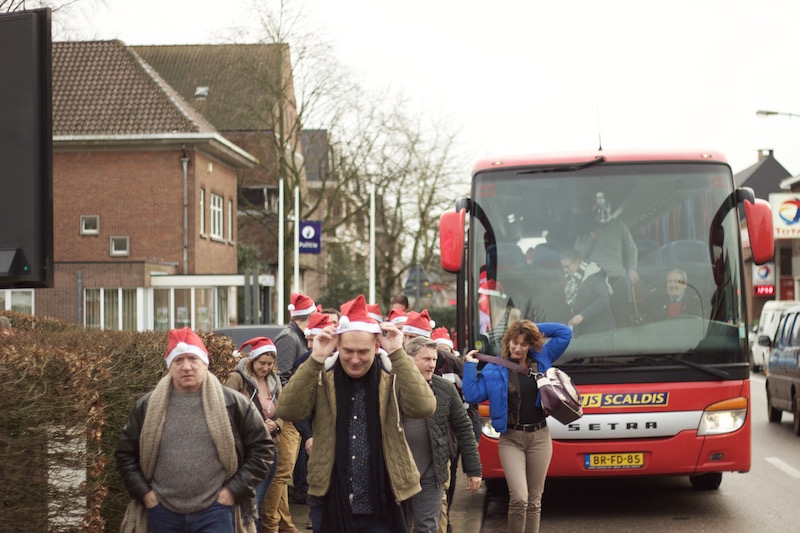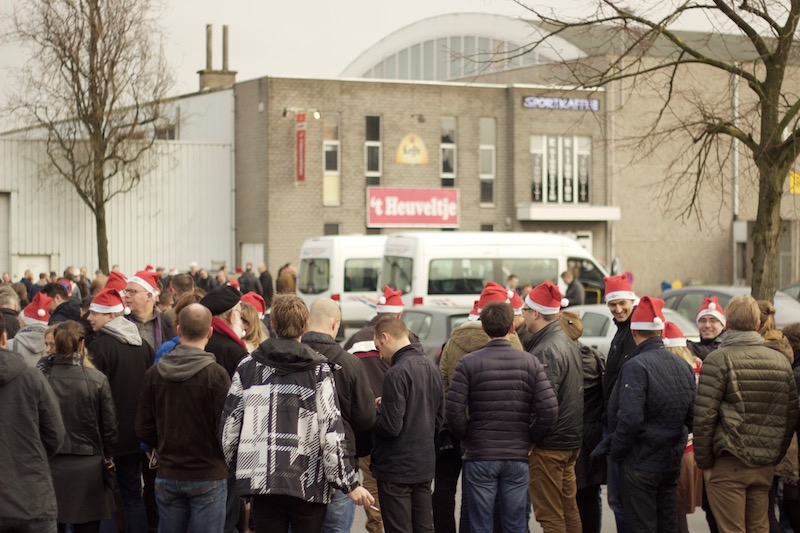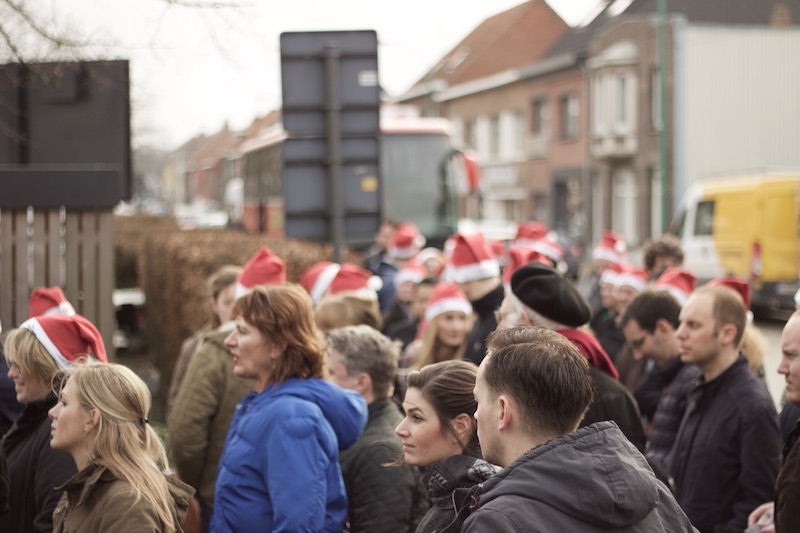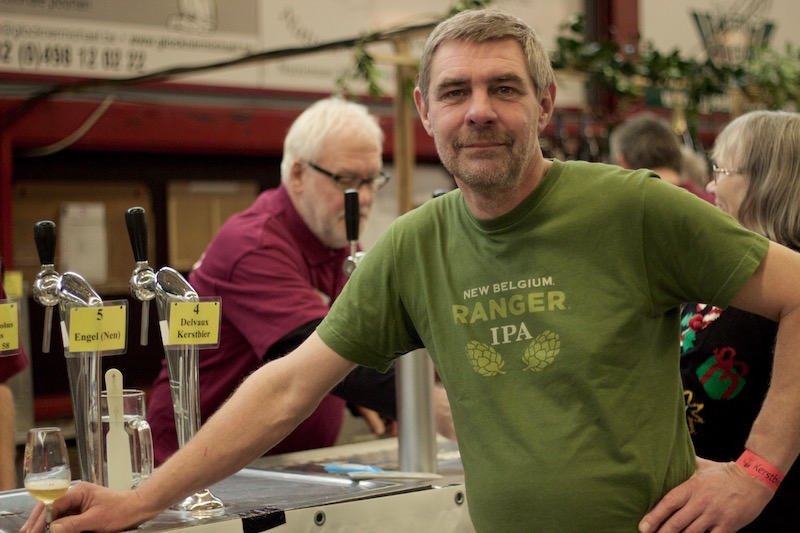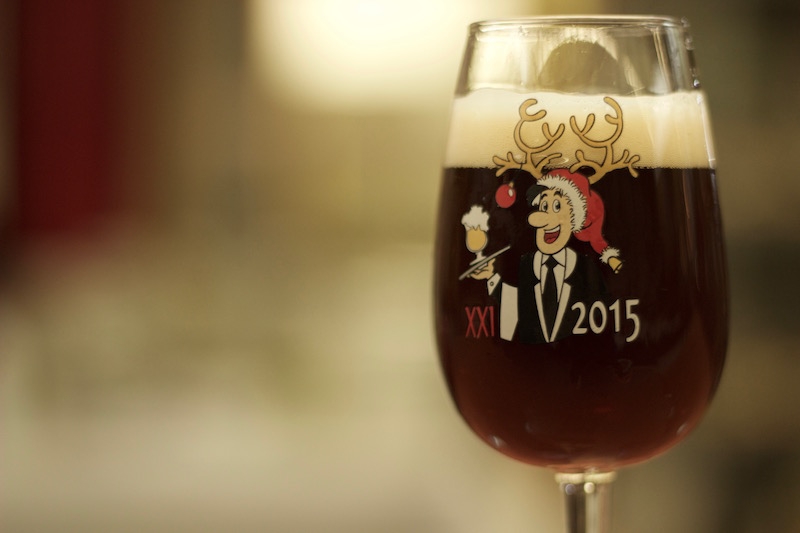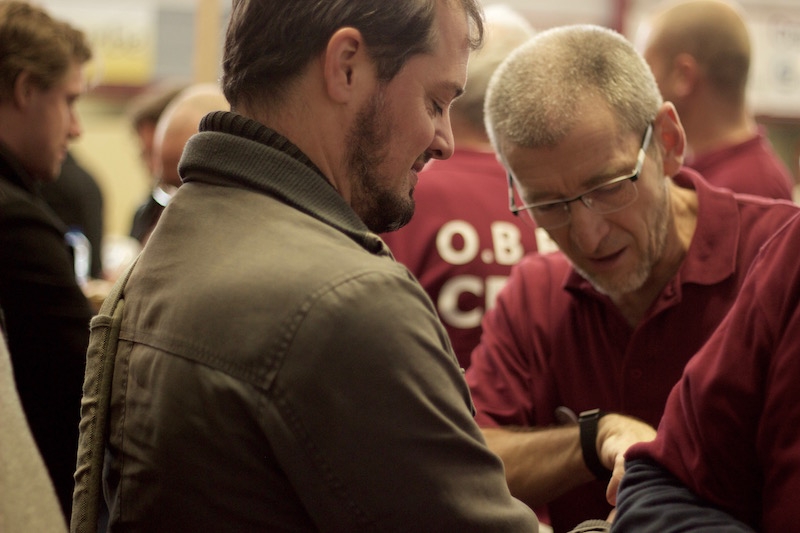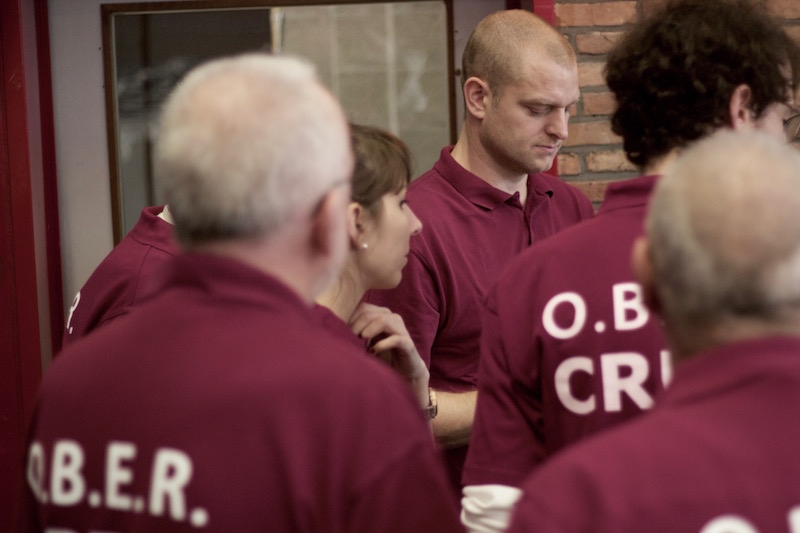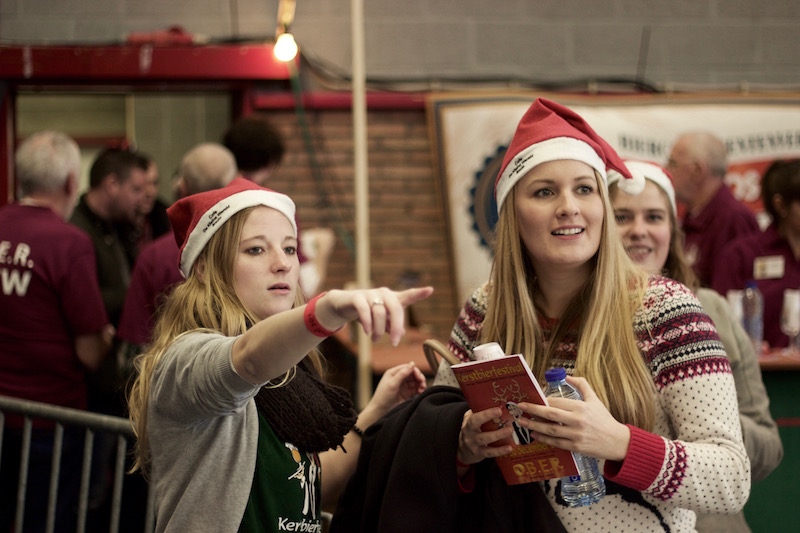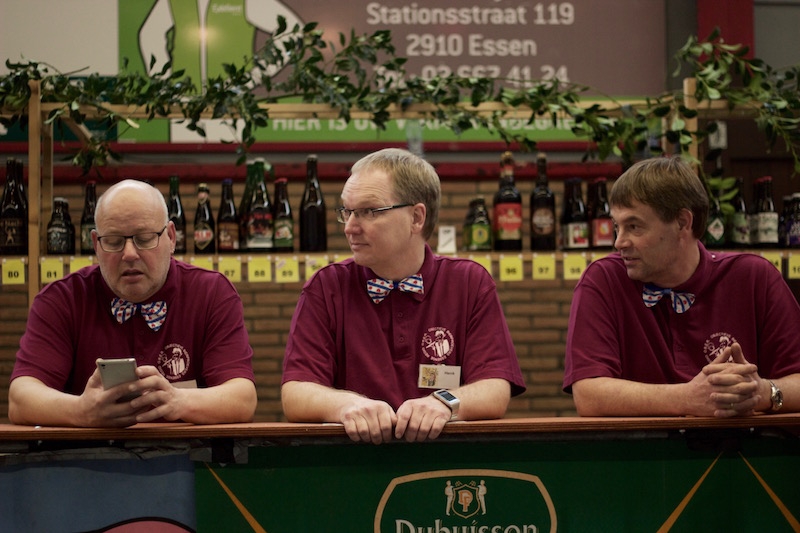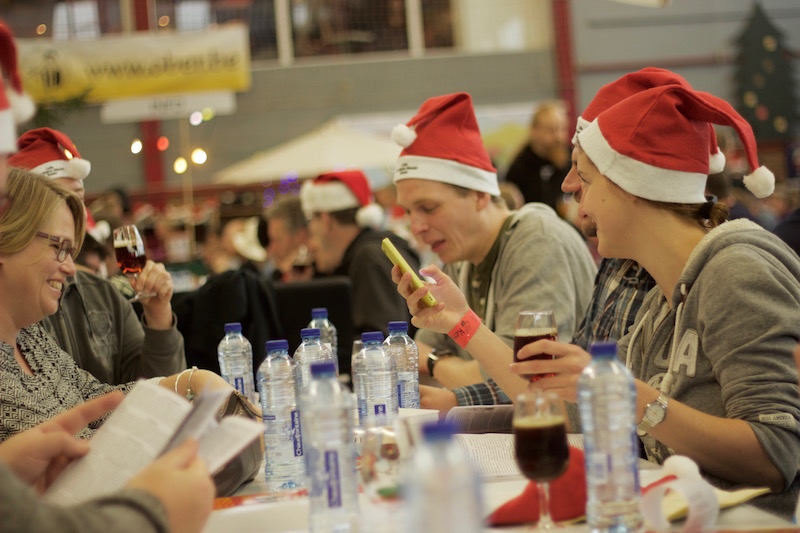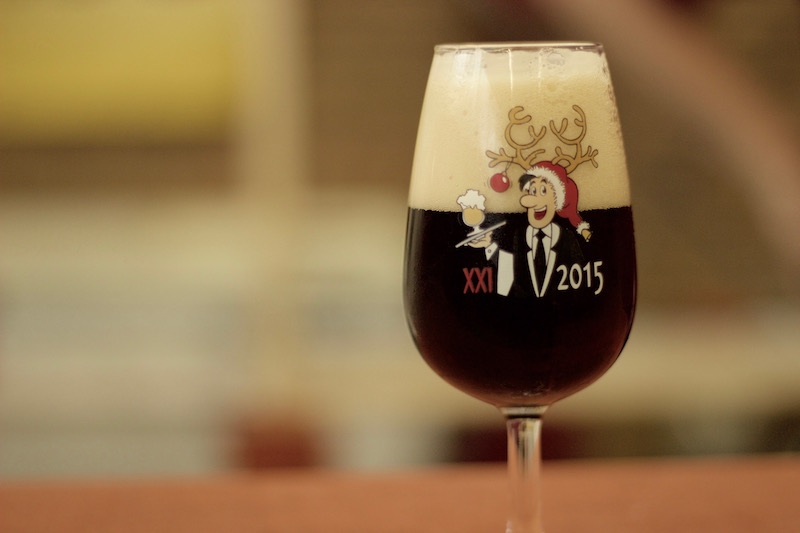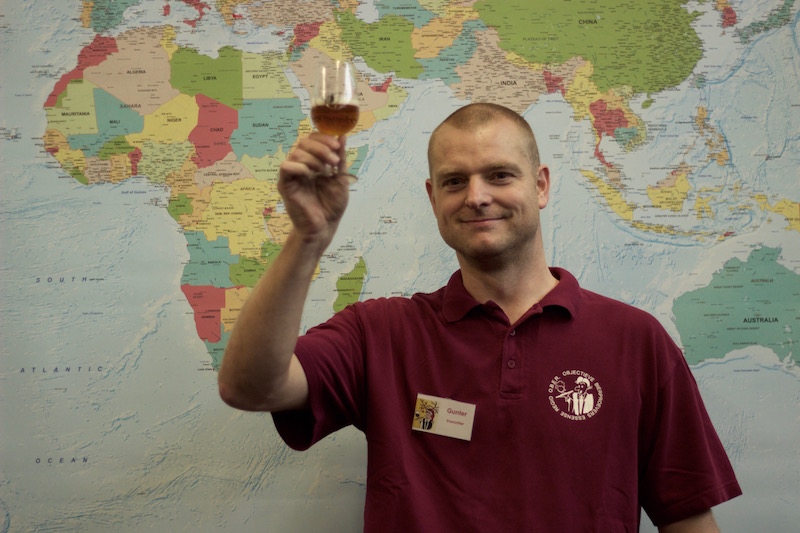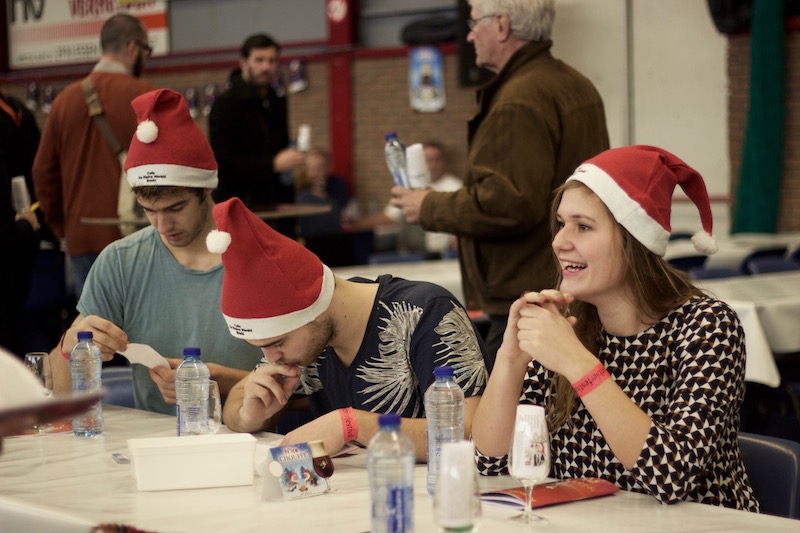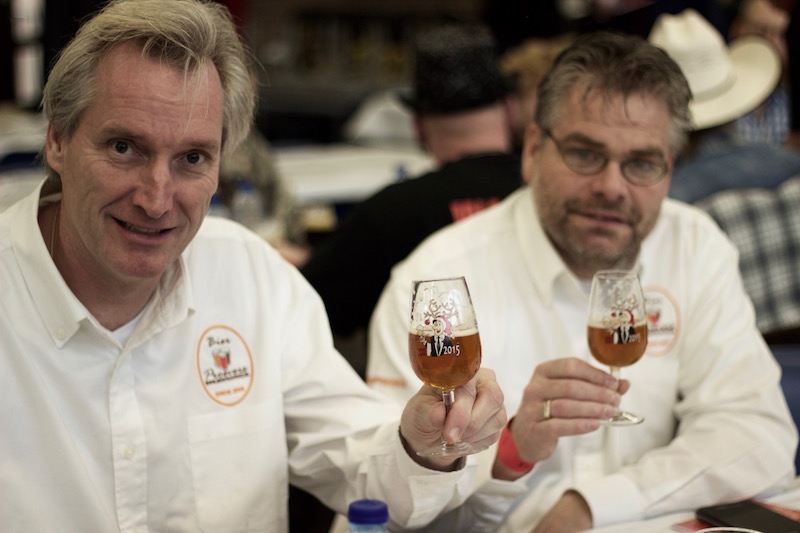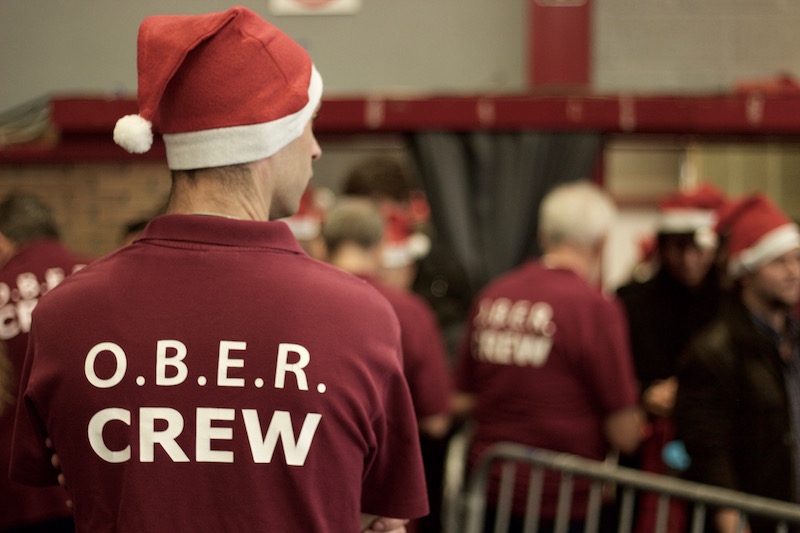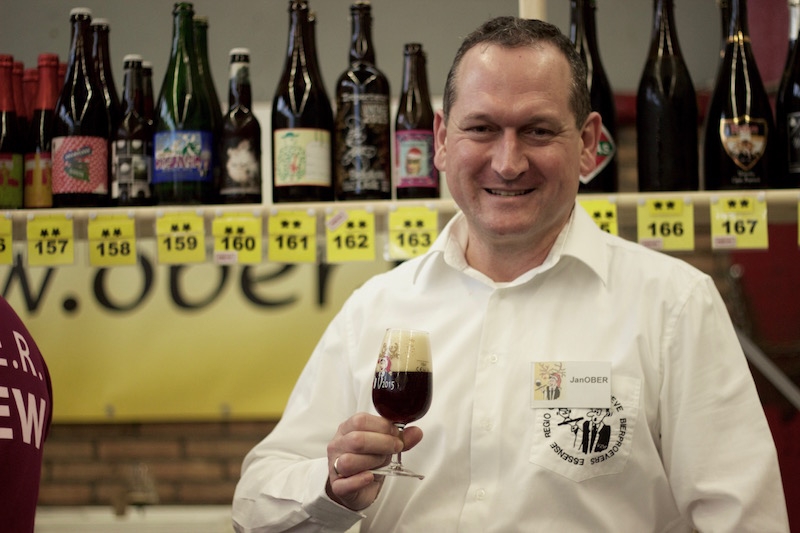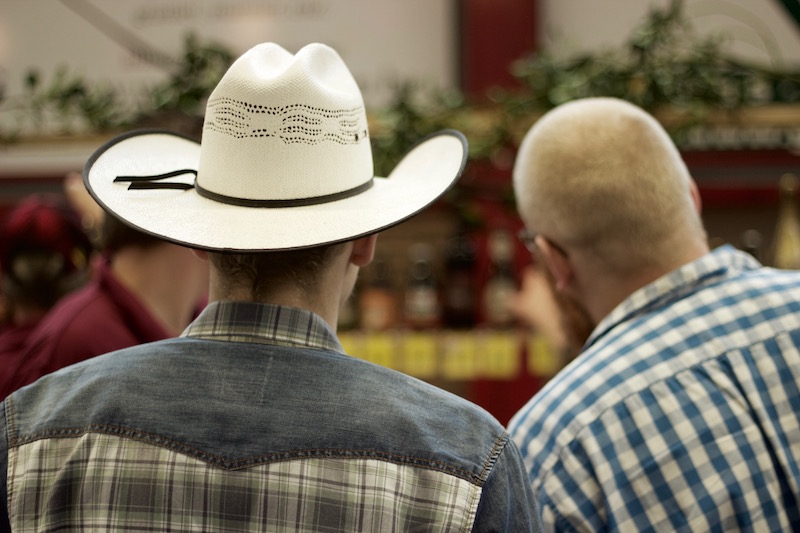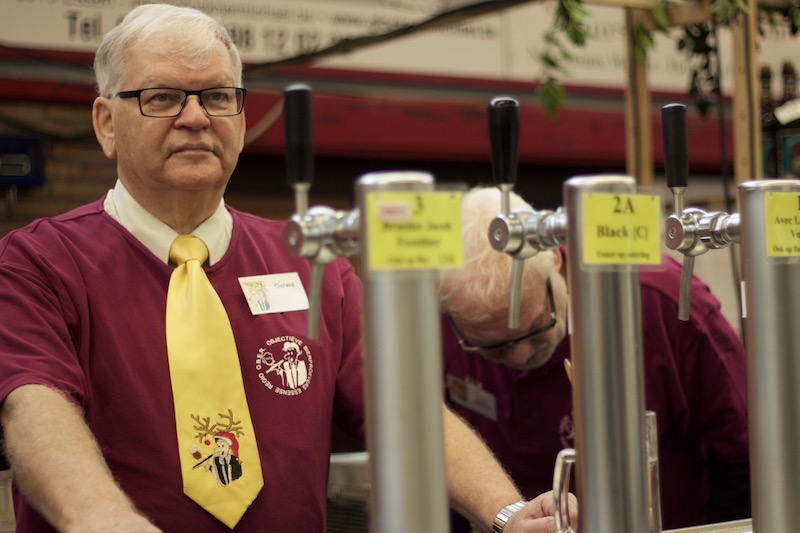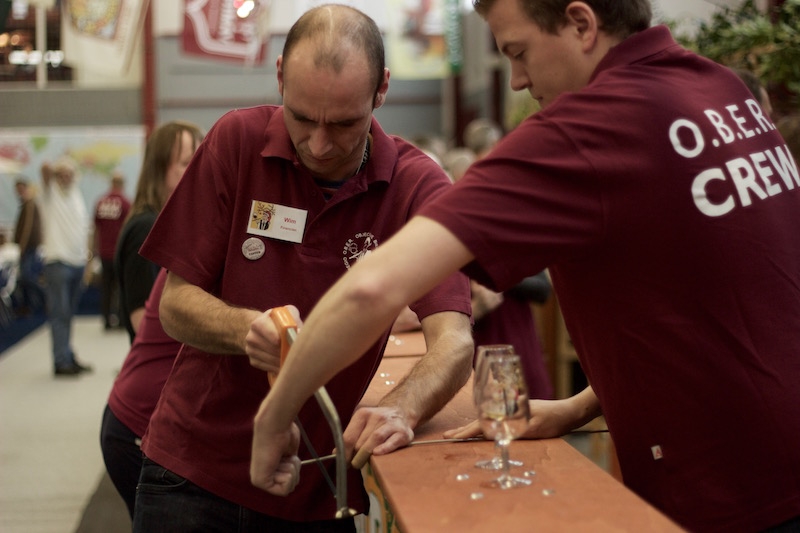It’s less than one week until Christmas day and hundreds of Belgians are emptying out of lines of buses into the main street of a small town in the northern part of Flanders. Most are wearing some variation on the red and white Santa hat and all quick-step to join a long queue outside the Heuvelhal on Kapelstraat.
It’s the annual Christmas Beer Festival in Essen at which the 178 different beers being poured are seasonal Christmas and Winter beers. It’s organised by O.B.E.R., the ‘Objective Beer tasters of the Essen Region’, a Zythos affiliated beer club based in the province of Antwerp.
CHRISTMAS BEER FESTIVAL
O.B.E.R. started organically as most beer clubs do, emerging from a gathering of pioneering beer lovers in a specialist beer shop. “In Essen there was nothing except for 3 large warehouses who sold some specialty beers,” says Gunter Mertens, Chairperson of O.B.E.R. “It was at a tasting at one of these, Drankenhandel Van Oevelen, that some people gathered and decided to start up a club so they could promote the more artisanal beers of smaller breweries.”
That was the end of 1993 and by Christmas 1994, they were organising their first Christmas beer festival. “We started with 200 visitors at Mariaheem, which is quite far from the railway station,” says Gunter. “Then in 1995, the festival moved to the parish centre of Essen-Statie.”
One of the founding members of the club and part of the small team of volunteers at that first festival was Marc Struyf, then home brewer and now owner of Brouwerij Den Triest in Kapelle op den Bos. “At that time, having 35 different beers at a festival was a lot,” says Marc. “We didn’t know how many people were going to turn up. We had to sleep over in the hall on the Saturday night with the crates of beer to make sure no-one stole them for the Sunday.”
For the inaugural festival they roped in the help of 10 volunteers. That number has risen to 75 in recent years. The parish centre soon became too crowded and they moved to their current location in 2005. “When we launched our first website in 2000, there was a lot of growth,” says Gunter. “And in 2002 the beer list increased for the first time to more than 100 different beers.”
DARK, SWEET AND STRONG
Christmas beers aren’t so much a style of beer as they are a widespread brewing tradition. Surviving in many of the ‘established’ beer nations, it’s one that is particularly strong in Belgium, presenting itself in the form of ales which are usually darker, sometimes sweeter and very often stronger than most.
There’s certainly an element of gimmickry at play in an ever growing market where shelf space is at a premium and seasonality is valued by consumers, but the reality of beers equipped with warming alcohol characteristics should retain at least some usefulness (and pleasure) during the cold months of the year, not to mention an opportunity for thoughtful brewers to deploy dark flavoured malts, spices, herbs and fruit in exploration of this cultural phenomenon. Virtually anything remotely connected to the theme of Christmas is used these days, from common additions like cinnamon, orange peel, cloves and vanilla to flavours reminiscent of roasted apples, nutmeg, ginger and honey.
“Back in 1993-94 when O.B.E.R. joined the Objectieve Bierproevers, now Zythos, we were obliged to organise an event to promote beer culture,” says Gunter. “One of the other affiliated clubs, De Dolle Proevers, based in Antwerp, ceased to exist around that time and they had organised a Christmas beer festival before. Gerard Peeters was our first – and now honorary – Chairman and he had been a member of that club. He took the idea with him.”
JUST THE TICKET
In previous years, you could just show up in Essen on the day of the festival and hope the queue to get in wasn’t too long. For the 2015 edition, a pre-sale ticket system was introduced. “This year we had about 2,000 visitors over the weekend,” says Gunter. “Due to the ticket sales this year for the first time, that’s about 1,000 less than previous years. As funny as it may sound, we were very happy with that.”
The introduction of the ticket system is a by-product of the Christmas beer festival’s success. “It just wasn’t fun anymore,” says Gunter. “Too many people had to wait outside and couldn’t get in. If you were a volunteer you didn’t have even a few minutes to rest. We don’t want to grow. We’ve only got so many people and we’ve got limited resources at this venue. Some people complained, but mostly because tickets were sold out by mid-October and they were too late to get them.”
The decision to downsize will go some way to ensuring the experience of the festival is maintained and it’s likely to generate an element of exclusivity to prompt further interest – rightly or wrongly – from international beer geeks in their continued search for unique experiences. “People at the festival had more space this year,” says Gunter. “And they didn’t need to wait for 20 minutes to get a beer. We think it will sell out even faster for the next edition.”
TRAVEL AND SELECTION
Unlike many in Belgium, the make-up of this beer club has an international twist. Just less than one third of O.B.E.R.’s membership are from the Netherlands. That’s not strange when you consider that Essen is only a couple of hundred metres from the Dutch border. But they’ve also got paid up members – perhaps attracted by the unique nature of the Christmas beer festival – from the UK and the US, some of whom travel to Belgium fanatically each year to volunteer at the festival.
Up until last year, the rules for inclusion of a beer were deliberately relaxed. “In the last 10 to 12 years, several oak aged beers like Smisje Calva and Oerbier Reserva sneaked in as holiday specials because they had been promoted as such by their US importers,” says Gunter. “There were other beers that were new or one-offs that got launched around the same time as the festival that we went on to include. Sometimes we listed a beer the year it was launched but not the year after. Sometimes we keep the beer on the list just because it has become one of our favourites, like Avec Les Bon Voeux from Dupont.”
This culminated in a peak offering of 206 beers in 2014 for the 20th anniversary of the Christmas beer festival. But there’s been an attitude shift for the most recent edition. Keen to ensure the authenticity of the event, they axed around 70 beers from the list in 2015, some of which were retired by the breweries and others which weren’t ready in time for the festival. In addition, they added 40 more Christmas beers. “Our goal has always been to include all Belgian brewed seasonal Christmas and Winter beers,” says Gunter. “But this year we’ve been much more critical and gone back to basics. It’s just too hard to store over 200 beers in the space we have.”
SILENT NIGHT
As happens at many festivals in Belgium, the organisers ask those who attend to vote for their favourite Christmas beer. The third place choice on each person’s ballot is attributed 1 point, second place 2 points and their favourite beer 3 points. The points are tallied and the top ten list is published on the O.B.E.R. website a week or two after the festival.
One particular beer has dominated this list. Stille Nacht – ‘Silent Night’ in English – has a dried fruit and toasty caramel profile, all the warming booziness that its 12% ABV suggests and the trademark subtle acidic notes of De Dolle Brouwer’s open fermentation. It’s brewed not in Essen, but in Esen in West Flanders and was voted the best Christmas beer not only in 2015, but at seven festivals in total, including in 2005, 2007, 2010, 2011, 2012, 2013 and 2014.
De Dolle Brouwers even cooperated with O.B.E.R. to produce a special Stille Nacht for their twentieth anniversary Christmas beer festival last year, a Stille Nacht Reserva aged on Languedoc wine barrels.
Seven years the best Christmas beer. By that reckoning, it’s now just as traditional as roast turkey and new socks.



